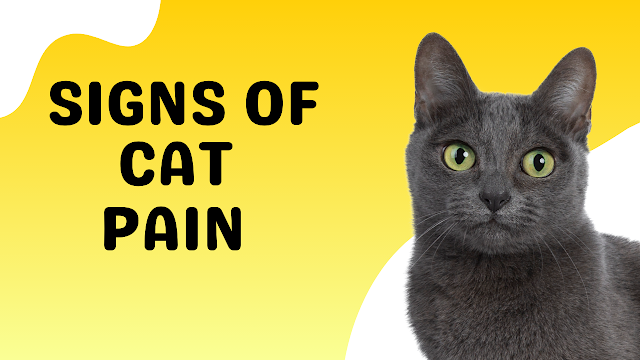What Food Can Hamsters Eat?
 |
| image: canva |
Hamsters are adorable and beloved pets known for their small size and big personalities. Proper nutrition is essential for their health and well-being, but many owners may wonder: what food can hamsters eat? In this article, we'll explore the dietary needs of hamsters and provide a comprehensive guide to the foods that are safe and nutritious for these furry critters.
What Do Hamsters Eat?
Here is a rough breakdown of how much of each type of food you should feed your hamster:
- Pellets: 75%
- Fresh fruits and vegetables: 20%
- Treats: 5%
While they may be small, their nutritional needs are diverse, encompassing a mix of grains, fruits, vegetables, and proteins. Here is a breakdown of the main food groups that hamsters can eat:
Hamster Pellets
Commercial hamster pellets are an essential staple in your pet's diet, providing a balanced mix of nutrients, vitamins, and minerals. Look for high-quality pellets specifically formulated for hamsters, as they are designed to meet their unique dietary requirements. These pellets are typically composed of a blend of grains, seeds, and fortified ingredients to ensure your hamster receives essential nutrients for optimal health.
However, it's essential to avoid mixes with large quantities of seeds or nuts, as these can lead to selective feeding and nutritional imbalances. Offer pellets as the main component of your hamster's diet, supplemented with fresh vegetables, fruits, and occasional treats to provide variety and ensure a well-rounded nutritional intake.
Fresh Vegetables
Incorporating fresh vegetables into your hamster's diet provides essential vitamins, minerals, and fiber. These nutritious additions not only offer variety but also contribute to your hamster's overall health and well-being. Introduce small portions of vegetables such as carrots, broccoli, spinach, and bell peppers into your hamster's diet to provide a range of nutrients. Ensure that the vegetables are washed thoroughly to remove any pesticides or contaminants.
Chop the vegetables into bite-sized pieces to prevent choking hazards, and offer them alongside your hamster's regular food. Experiment with different vegetables to find out which ones your hamster enjoys the most, and remember to provide fresh vegetables regularly to promote a balanced diet and optimal health.
Fruits
Hamsters enjoy a variety of fruits as occasional treats, providing both nutritional value and sensory enrichment. Offer small amounts of fruits such as apples, bananas, strawberries, and blueberries to add variety to their diet and satisfy their sweet cravings. Fruits are rich in vitamins, minerals, and antioxidants, contributing to your hamster's overall health and well-being.
However, it's essential to feed fruits in moderation due to their natural sugars, which can lead to weight gain and digestive issues if consumed excessively. Remove any seeds, pits, or cores before feeding to prevent choking hazards, and monitor your hamster's response to new fruits to ensure they tolerate them well.
Protein Sources
Protein is essential for your hamster's muscle growth and overall health. Offer small portions of lean protein sources to meet their dietary needs. Cooked chicken, boiled eggs, and tofu are excellent options that provide high-quality protein without added fats or salt. Avoid feeding your hamster processed meats or high-fat proteins, as these can lead to weight gain and digestive issues.
Remember to cut the protein into small, bite-sized pieces to prevent choking hazards. Incorporating a variety of protein sources into your hamster's diet ensures they receive the necessary nutrients for optimal health and vitality. Monitor their intake and consult with a veterinarian if you have any concerns about their dietary requirements or protein consumption.
Whole Grains
Incorporating whole grains into your hamster's diet provides essential fiber and energy to support their overall health. Offer small amounts of cooked grains like oats, barley, or brown rice as occasional treats or supplements to their main diet. Whole grains offer a variety of nutrients, including vitamins, minerals, and antioxidants, which contribute to your hamster's well-being.
Avoid sugary cereals or processed grains, as these may not provide the same nutritional benefits and can lead to weight gain or digestive issues. Opt for plain, unseasoned whole grains and monitor your hamster's intake to ensure they maintain a balanced diet that meets their nutritional needs.
Hay and Grass
Hay and grass play a vital role in a hamster's diet and overall well-being. These fibrous materials are essential for maintaining healthy teeth and aiding digestion. Timothy hay or orchard grass should be provided in abundance in your hamster's habitat, serving as a source of entertainment, bedding material, and dietary fiber. Chewing on hay helps wear down a hamster's constantly growing teeth, preventing dental problems like overgrowth or malocclusion.
Additionally, the roughage provided by hay promotes proper gastrointestinal motility, reducing the risk of digestive issues such as bloating or constipation. Ensure the hay is fresh, dry, and free from mold or pesticides, and replenish it regularly to encourage natural foraging behaviors in your hamster.
Conclusion
Understanding what food hamsters can eat is crucial for providing them with a balanced and nutritious diet. By offering a variety of hamster pellets, fresh vegetables, fruits, protein sources, whole grains, and hay, you can ensure your furry friend stays healthy and happy. Remember to monitor their diet and adjust portions accordingly to prevent obesity and other health issues. Consult with a veterinarian if you have any concerns about your hamster's nutrition or dietary needs. With proper care and a well-rounded diet, your hamster will thrive for years to come.
Hamster Food FAQs
1. Can hamsters eat chocolate?
No, chocolate is toxic to hamsters and should never be given to them.
2. Can hamsters eat grapes?
Grapes can be offered to hamsters in small, seedless portions as an occasional treat.
3. Can hamsters eat bananas?
Yes, bananas can be given to hamsters in small amounts as a treat, but they should be ripe and without the peel.
4. Can hamsters eat oranges?
Oranges can be given to hamsters in very small amounts as an occasional treat due to their high sugar content.
5. Can hamsters eat cucumber?
Yes, hamsters can eat cucumber as a refreshing and hydrating treat.
6. Can hamsters eat watermelon?
Yes, watermelon can be given to hamsters in small, seedless portions as a refreshing treat.
7. Can hamsters eat spinach?
Yes, hamsters can eat spinach in small amounts as part of their leafy green vegetable options.





Comments
Post a Comment